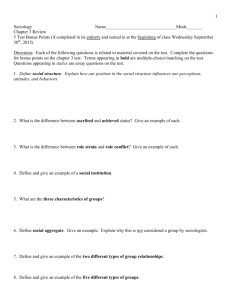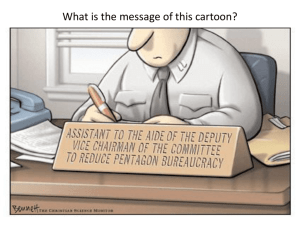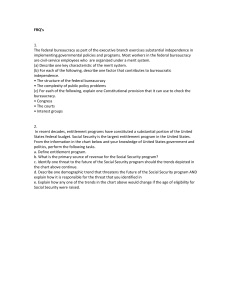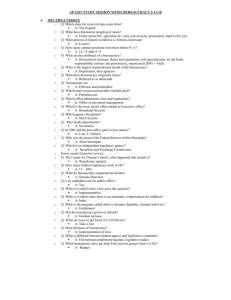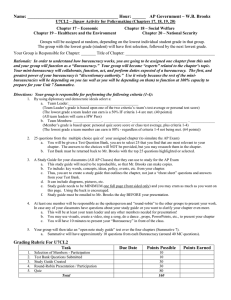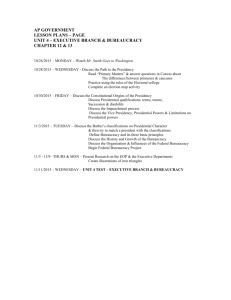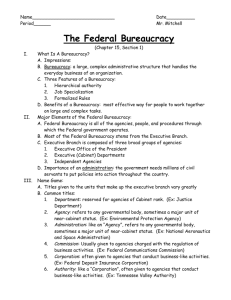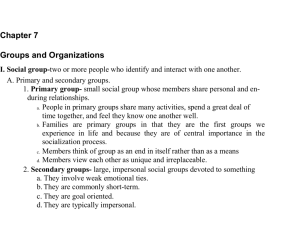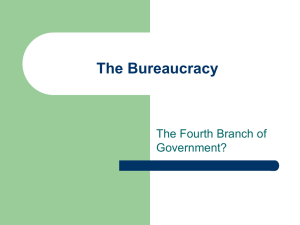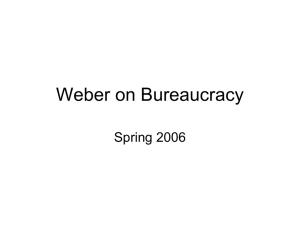A.P. GOVERNMENT Final Chapters To finish our last three chapters
advertisement
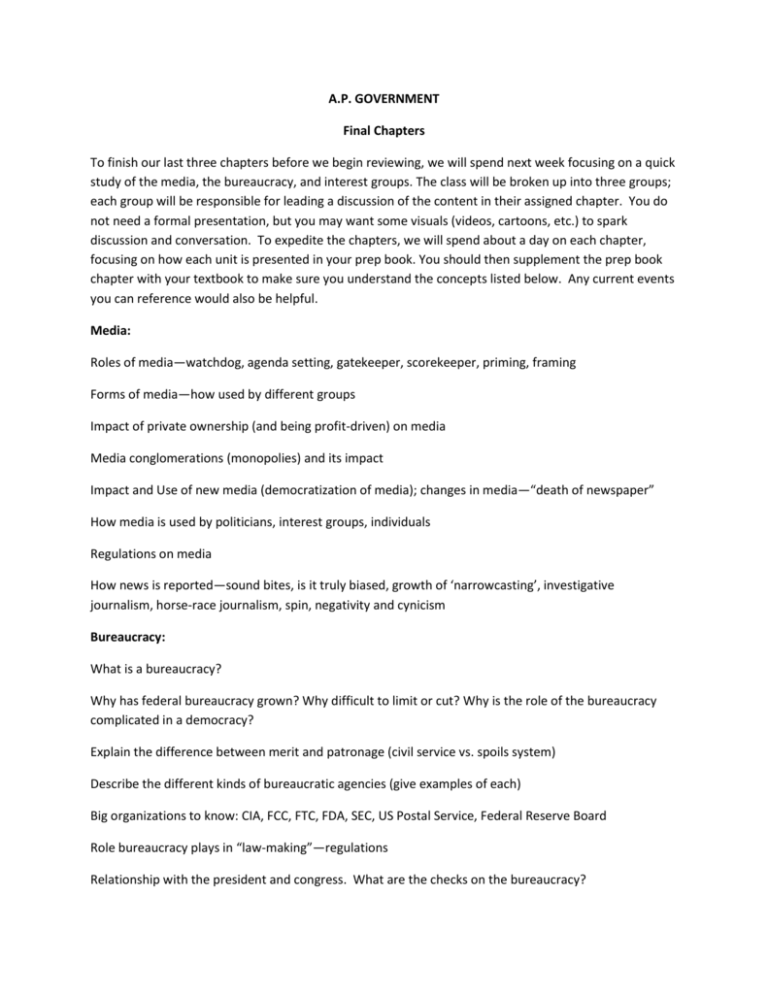
A.P. GOVERNMENT Final Chapters To finish our last three chapters before we begin reviewing, we will spend next week focusing on a quick study of the media, the bureaucracy, and interest groups. The class will be broken up into three groups; each group will be responsible for leading a discussion of the content in their assigned chapter. You do not need a formal presentation, but you may want some visuals (videos, cartoons, etc.) to spark discussion and conversation. To expedite the chapters, we will spend about a day on each chapter, focusing on how each unit is presented in your prep book. You should then supplement the prep book chapter with your textbook to make sure you understand the concepts listed below. Any current events you can reference would also be helpful. Media: Roles of media—watchdog, agenda setting, gatekeeper, scorekeeper, priming, framing Forms of media—how used by different groups Impact of private ownership (and being profit-driven) on media Media conglomerations (monopolies) and its impact Impact and Use of new media (democratization of media); changes in media—“death of newspaper” How media is used by politicians, interest groups, individuals Regulations on media How news is reported—sound bites, is it truly biased, growth of ‘narrowcasting’, investigative journalism, horse-race journalism, spin, negativity and cynicism Bureaucracy: What is a bureaucracy? Why has federal bureaucracy grown? Why difficult to limit or cut? Why is the role of the bureaucracy complicated in a democracy? Explain the difference between merit and patronage (civil service vs. spoils system) Describe the different kinds of bureaucratic agencies (give examples of each) Big organizations to know: CIA, FCC, FTC, FDA, SEC, US Postal Service, Federal Reserve Board Role bureaucracy plays in “law-making”—regulations Relationship with the president and congress. What are the checks on the bureaucracy? Role in budget process Difference between career bureaucrats and appointees What is meant by ‘agency capture’? What are Iron Triangles and issue networks? Dangers of cozy relationships with Congress, interest groups, etc. Interest Groups: How do democracy and the Constitution allow for the growth of interest groups? Define interest group. How different from political parties? What is an iron triangle? How do interest groups play a role in legislating? What is the free-rider problem? Explain the different types of interest groups and the advantages/disadvantages each may have (give examples) Describe the roles of interest groups (agenda building, lobbying, education, etc.)—give examples What is lobbying? How do interest groups lobby the different branches of government? How do lobbyists do their job? What’s the revolving door? How do interest groups play a role in campaigning? What are PACs and 527 groups? Discuss how the number of Interest groups has changed Describe the methods used by interest groups

